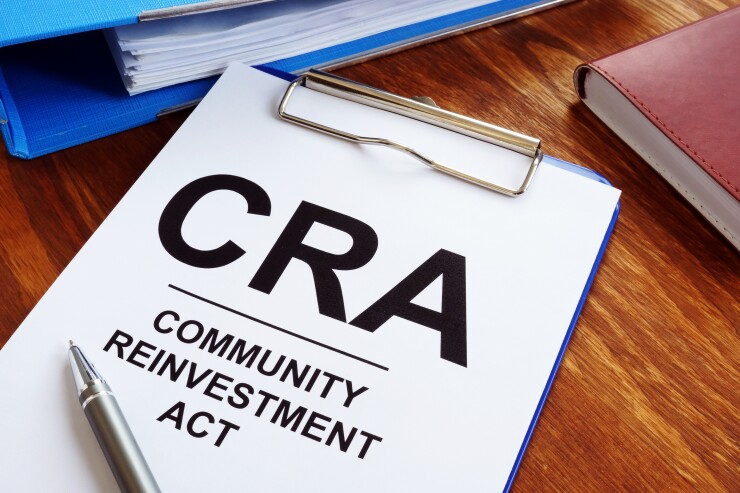
Federal regulators have formally begun the process of nullifying their 2023 update to implementing regulations for the Community Reinvestment Act, a Civil Rights-era anti-redlining law that requires banks to invest in the communities they serve.
The Federal Reserve Board, Federal Deposit Insurance Corp. and Office of the Comptroller of the Currency issued a proposal on Wednesday to rescind changes they implemented to the Community Reinvestment Act just two years ago.
If finalized, the rule change would revert the agencies to their 1995 CRA framework.
The move comes as the CRA reforms face
Agency heads had announced their intentions to roll back the 2023 CRA changes earlier this year, but unlike other Biden-era bank policies — some of which were never finalized while others were issued as guidance — undoing them requires conducting a formal notice-and-comment process.
The Federal Reserve Board voted unanimously in favor of rescinding the rule change. It is the first rule proposal to garner support from all seven board members this year, as Fed Gov. Michael Barr has dissented from many regulatory initiatives since
Current Fed Vice Chair for Supervision Michelle Bowman, in a written statement released alongside the announcement, said the 2023 revisions were ill-conceived, unnecessary and likely illegal.
"As I noted at the time, the 2023 final rule likely exceeded the statutory authority of the agencies and was unnecessarily complex, overly prescriptive, and contained disproportionately greater costs than benefits, adding significantly greater regulatory burden for all banks, but especially for community banks," Bowman said. "The rule was premised on an assumption that banks were not doing enough to meet the credit needs of their communities. Yet, banks have a deep commitment to supporting their communities and continue to meet the letter and spirit of the CRA statute."
Congress passed the CRA in 1977 in response to de facto lending discrimination against underserved Americans, predominantly among communities of color. The law directs agencies to grade banks on how equitably they are lending to low- and moderate-income customers and neighborhoods in their service areas — areas that are determined based on where banks have branches and deposit-taking automated teller machines. Banks seeking to merge or acquire other firms must receive a satisfactory mark in order to receive regulatory approval.
During the Biden administration, the federal banking regulators
The
In April 2024, a federal judge in Texas
Regulators announced their
The 90s-era CRA rules — which have been in effect even after the 2023 update was finalized because of the banks' lawsuit — had not had a major effect on household credit access, according to a
Critics have also decried "double-counting" under the current CRA — cases in which multiple banks receive credit for the same loan — and have called for giving more weight to loan originations than loan purchases, as well as applying CRA standards to nonbanks. With 98% of
Ongoing litigation has
The proposal will be open for public comment for 30 days following publication in the Federal Register.






